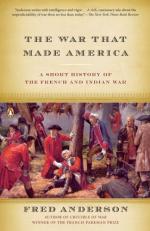|
This section contains 2,358 words (approx. 8 pages at 300 words per page) |

|
Mixture.
In colonial America education included many types of learning, with little emphasis placed on formal schooling. Parents were more involved in their children's learning than the government was, and schools received support from a great variety of places but were not accessible to all. Since the population of colonial America, especially south of New England, was widely scattered, the organization of a formal school system was also geographically demanding. Colonial education encompassed nearly every aspect of colonial society: families, communities, public and private schools, literary societies, churches, individual schoolteachers and tutors, missionary and philanthropic associations, and places of employment, including the household. Formal schooling existed primarily for wealthy males of European descent.
Religious Influence.
In the seventeenth and early eighteenth centuries religion motivated most educational efforts. Literacy was the key to understanding the word of God, so most schools and colleges were organized by the clergy, missionaries...
|
This section contains 2,358 words (approx. 8 pages at 300 words per page) |

|



